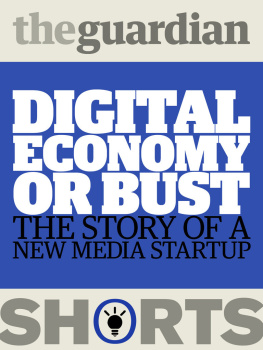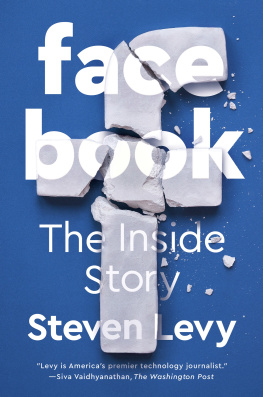Social gaming
Facebook has also been a major factor in transforming the number and demographics of gamers - by enabling a platform for the growth of casual social gaming.
Fed up with your office job? Then do what I did become a cyber yokel instead
Sam Leith, The Guardian, Monday 19 October 2009
T here was a time when people talked of videogames as an art form. They had sophisticated modular narratives, critics would say, as well as parallax scrolling and anamorphic perspective. Halo? Its killzones had a radiant beauty. BioShock? Love those eerie 1940s stylings. But the games that are booming today are different: theyre what used to be called resource management games, and a lot of them can be found on Facebook. They are games, if were honest, that people play sneakily on their computers while at work.
Something odds at play here. Work is becoming less like work, what with teleworking, flexitime, automation, and entire industries such as PR, marketing and (unfortunately) journalism spreading on to social networking sites. Meanwhile, entertainment is becoming more like work. The most popular telly is now about people doing jobs, or trying to get them: cooking, singing, dancing, sucking up to Sir Alan Sugar. And videogames are becoming even more like work, too.
Ive been playing FarmVille on Facebook. You click on the icon and a cartoon yokel in dungarees appears on a grid of green squares. Thats you. Hello! Your yokel has a pocket full of gold coins. You click on any square to plough it, click to buy seed, click to plant it. Then you wait, anything between two hours and three days, depending on your crop. Then you log on and look! Your crop has grown. Click to harvest it. Click, click, click, click, click, anything up to 148 times. Then you get more coins. Plough, sow, wait, click, click, click.
And thats it. You dont conquer anything, you dont run any risks, theres nobody to fight and nothing to do. As you advance, all that happens is you get more coins and can grow, say, yams instead of carrots. If youre bored with watching your own imaginary plants grow, you can visit a neighbours farm, and watch their imaginary plants grow.
Ive been to your farm, a friend told me recently. Youre growing a lot of pineapples, arent you? An awful lot. I felt violated. FarmVille pineapples are to real pineapples what a Jeff Koons balloon dog is to my cousins dachshund: empty, blandly pretty, infinitely reproducible and inedible, obviously. Yet there you are at your computer, clicking endlessly to grow imaginary objects for imaginary profit. When I see the FarmVille icon, I get the same sick feeling I used to get when I knew there was a deadline I was neglecting: a mixture of guilt and a reluctance to do anything about it, made worse in this case because every minute I spend working on my farm is a minute I am not spending working on my work. I have taken to seeking out the crops that take longest to grow so I dont have to log in to the wretched game more than once every couple of days. But still, there are cows to milk and apples to harvest. And those chickens wont collect their own eggs. Awful!
This means people are taking time out from unfulfilling, white-collar, desk-bound jobs in order to play an unfulfilling, white-collar, desk-bound simulation of manual labour. Which, given the number of clicks involved, is actually the closest to manual labour theyll get. OK, youre not about to lose a thumb to a combine harvester, but you are more likely to contract RSI.
Its not just farming you can get into. Theres a game where you pretend to be a short-order chef, and another where you bake cookies. Even Mafia Wars where youd expect a bit of excitement is essentially a bleak round of collecting money from your property empire and reinvesting it in yet more property. These games are basically identical: take gold, spend gold, rinse, repeat.
So videogames, having flirted with the status of art, are now retreating from it. Theres no narrative, and the sounds and images are looped and repetitive, designed to look as designless and generic as possible. Instead of standing aside from the production-line tedium of commerce, they imitate it. Yet millions plough this exhausting virtual furrow.
How will we escape? Well, look what has happened with multiplayer games such as World of Warcraft, calibrated to reward players who spend the most time in-game. Cant be bothered to invest hundreds of hours slaying boars and digging for gold? For a few quid on your credit card, workers at a virtual Chinese gold farm will do the work for you, showering your character with unearned gold coins and magic swords.
My prediction is that FarmVilles crew of dungareed cartoon yokels will end up doing the same which is, amusingly, what farmers do in the real world: contract out the dreary tasks of reaping and sowing to scandalously underpaid migrant labour. Eventually, we will pay virtual Chinese farmers real money to grow our imaginary pineapples. And what will we do with all the time that frees up?
I know it sounds silly, but we could always try working.
Are social games the future?
Cutesy, non-violent games are taking advantage of the Facebook market
Naomi Alderman, guardian.co.uk, Wednesday 21 April 2010
T he average social gamer is a 43-year-old woman. And social games played on networks such as Facebook are expected to generate about $1bn this year. Traditional console gamers might eventually be in the minority.
Reflecting the older, more female demographic, top Facebook games are mostly non-violent collecting or simulation games. A couple of years ago the big Facebook gaming craze was Packrat a card-collecting, set-completing game. Now, it is Farmville, in which players plant virtual crops before harvesting and using the profit to improve their farm. Frankly, these games are dull. They tend to be unchallenging, not particularly innovative, and characterised by cutesy graphics. But Im probably not their target market.
More interesting, is the recent launch of whats billed as Facebooks first soap opera. The intriguing Spirit of Adventure tells a story reminiscent of The English Patient a woman discovers the diaries of a second-world-war airman. With trinkets to win for completing puzzles, its gently enjoyable, and the fact that it centres around a story rather than the gameplay is interesting.
Increasingly, growth will come from groups who havent previously thought of themselves as gamers: more diversity doesnt necessarily mean all the games will be great, but Im excited to see what classics this genre throws up next.
Social gaming had been identified as a reason that people frequently returned to Facebook time after time during the day. This did not stop Facebook getting into conflict with one of the leading providers of this type of game experience over the issue of in-game payment.
Facebook strikes deal with Farmville maker
Facebook and Zynga, the company behind Farmville, have settled their dispute over game credits and entered into a five-year strategic relationship
Mark Sweney, guardian.co.uk, Thursday 20 May 2010
F acebook and Zynga, the company behind games such as Farmville, have buried the hatchet, announcing a five-year strategic relationship and shared commitment to social gaming.
The two companies have been at loggerheads over Facebooks attempt to make its virtual currency, Facebook Credits, the only one players of games made by Zynga and others can use.
Farmville, the hugely popular game where players cultivate their own farm, is free but players can buy virtual currency with real money to boost their plot.
Facebook takes a 30% commission every time its currency is used, leading Zynga which reportedly makes as much as $100m (70m) a year from selling virtual items such as barns to threaten to quit the social networking website.















